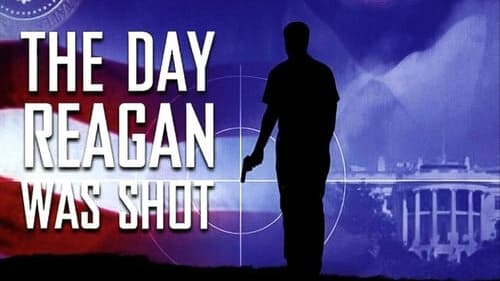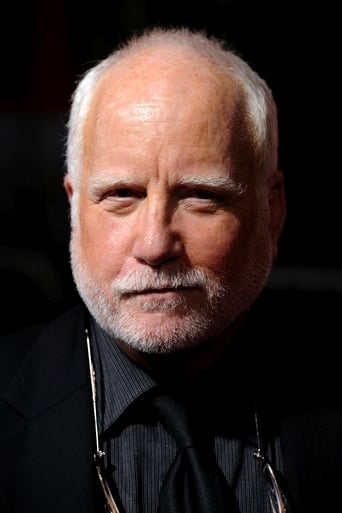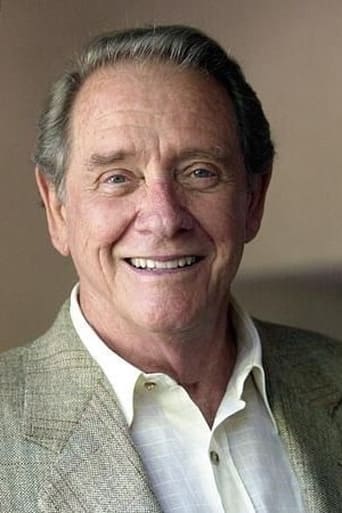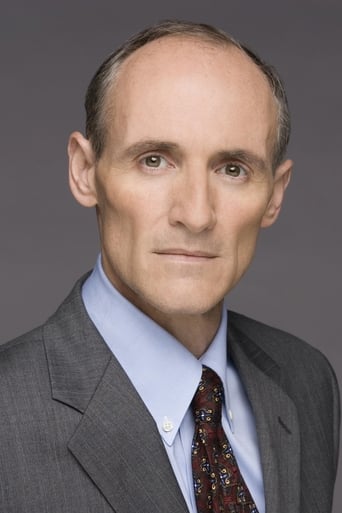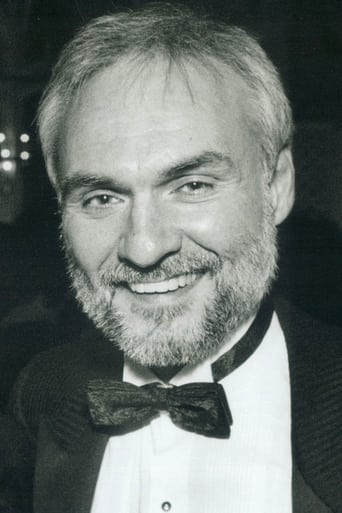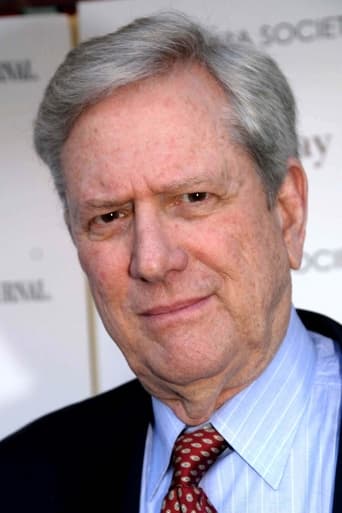Actuakers
One of my all time favorites.
LouHomey
From my favorite movies..
Doomtomylo
a film so unique, intoxicating and bizarre that it not only demands another viewing, but is also forgivable as a satirical comedy where the jokes eventually take the back seat.
Jonah Abbott
There's no way I can possibly love it entirely but I just think its ridiculously bad, but enjoyable at the same time.
msecour
It is clear that the low score average indicates that far too many votes were not on the film but on Reagan himself. This is an excellent film and a keeper in my library.I remember this day and this incident vividly. Who could forget the obviously shaken Al Haig telling the country that he was "in control" in the White House while Vice-President Bush was still in the air. This is the story behind the story: the chaos and panic that can set in when a President is shot. There is a theme in this real-life incident that was touched upon in television's "The West Wing" when "President Bartlett" was shot: when your first priority is to get medical assistance for an injured President, there can be oversights in procedure. And there were oversights when Reagan was shot.Richard Crenna does a wonderful job as Reagan, far superior to James Brolin's wooden caricature in "The Reagans." Richard Dreyfuss as Al Haig was brilliant. There is poignancy in the anxiety of the surgeon who "didn't even vote for the guy" and has to be reassured that he should treat Reagan like any other senior citizen in similar condition.The rest of the cast was top notch as well. I really enjoyed this film, but then I love history and I love stories that tell us what really happened. I wonder if I will live long enough to find out what really happened the day JFK was shot.
DK Bengel
After having seen this film on Showtime the other day, I was interested in seeing what the other Users of IMDB.com had to say about it. And I have to admit, after reading all of the reviews here-in, I still don't know what they thought about the film. I know what they think of Reagan, Haige, Bush Sr, the "Hollywood Left", The "Hawkish Right", Oliver Stone, even Bill Clinton. But I don't really know anything about what people thought of the movie. This is because NOBODY FREEKIN' REVIEWED THE MOVIE! Everyone seems so intent on protecting and/or attacking one political view or another that everyone seems to have forgotten that this is a FREEKING MOVIE, People, not REAL LIFE. The events portrayed in the film are based on actual events, which means that this is NOT a documentary. If you don't like the way this film portrayed Reagan or Nancy or Haige or Cap or Bush, then here is the solution you are looking for; don't watch it. Simple, right? Likewise if you think this is a factual indictment of the Reagan Administration and/or the Republican Party, then I beg you to stop getting your news from Jon Stewart. Don't like Clinton? Then don't vote for him. Don't like the Republicans? Then don't vote for them. Frankly, I don't care. If I wanted to hear a political discussion, I would engage in one on one of the millions of political websites on the web. I am a very political person, but I can also understand the difference between a movie and real life. If you can not, then perhaps you should not be posting film reviews.
And for the record, some technical errors/goofs aside, I thought that this was a taunt, well acted, enjoyable DRAMA about a day that almost changed the course of American History. It is DEFINITELY better than the 4-plus stars that have been afforded it. Check it out; just remember that is a movie, not a historical documentary. We CAN remember that, can't we?
Robert J. Maxwell
One of the fundamental issues in social life is the difference between the real life we lead and the way we see ourselves behaving, the difference between substance and perception.The crisis here involved maintaining the perception that all was hunky dory.Well, there were clips of the shooting repeatedly shown on TV so the incident couldn't readily be denied outright. But Reagan was reported walking unaided into GWH and joking with the medical staff, so he was perfectly all right except maybe with an injured rib or something. Brady was clearly in bad shape but we heard much less about him, and even less about the other victims. Reagan was always in good shape, never in danger, and was seen waving from the hospital window with that marvelous grin, back at work in no time.That was the perception we were handed by governmental spokesmen and a media happy to oblige. The substance was that Reagan was quite seriously injured, with a bullet lodged between his collapsed lung and his heart. A seventy-year-old man, he didn't respond readily to treatment and took months to recover. During part of that time of course he was narcotized and no longer in control of the government or anything else. The "football" which could start a nuclear war was taken by the FBI, who refused to turn it over to anyone except Vice President Bush, who was incommunicado, and then only when so authorized by the AG. Alexander Haigue, Secretary of State, seems to have promptly taken over the reins but was challenged by a number of other members of the cabinet. (As a result, nobody knew who, if anyone, was "minding the store.") The code card that activated the football had been left in a wallet in Reagan's pants, which had been thrown into a hospital laundry hamper. The reason the Vice President was incommunicado was that the phones didn't work. Caspar Weinberger, Secretary of Defense, raised the defcom level on his own, leading the USSR to believe that perhaps we blamed them for the shooting and were about to strike back. There is an illuminating exchange between Hague and the Chairman of the Joint Chiefs during these arguments. Hague: "Can the Soviet Union launch a first strike?" Chairman: "Yes, they can." Hague: "How do we stop it?" Chairman: "Launch a first strike." VP Bush wasn't much help in clarifying things, refusing to take over as Acting President partly because his doing so would look in the press as an admission that Reagan was incapacitated (which of course he was). That was the substance. But sometimes, through perfectly ordinary mistakes, the perception that was prepared for the public ("Everything's just fine") was contradicted. Alexander Hague got his line of succession wrong on TV in public. It had been changed in the late 1960s and he gave the earlier version. That statement shook up the press a bit, but as an error it was strictly minor league compared to what was going on behind the scenes.You don't really need to be a conspiracy theorist to see with what condescension the public is treated by powerful political figures and, with some exceptions, by the press. As things fall apart and the center is in danger of not holding, as the formal norms fail to be observed, as the substance becomes rent with disagreement and disbelief, a perception is gradually agreed upon that will be handed to the public. It doesn't have to be true (it doesn't even have to be compellingly believable) but it has to be as soothing as a dose of Pepto-Bismol otherwise the great unwashed, whose intelligence is far too low to manage the complexities involved in understanding the substance, will panic.The movie is, as I say, pretty well done. Dreyfus is a much more commanding figure than Hague appeared to be in interviews, but he did miss one outstanding moment in this real-life drama. It had to do exclusively with perception, not substance. In trying to calm the TV audience by saying that everything is proceeding normally, and "I'm in charge now," the most dramatic impression wasn't so much that he'd gotten the line of succession wrong. (Hardly anybody in the audience recognized the mistake because they didn't know the line of succession themselves.) The most persistent memory of that announcement was that Hague was an absolute nervous wreck, sweaty, shaking, his voice quavering. It projected an image of anything BUT normality. Cap Weinberger comes across as a thoughtless and impulsive hawkishly-bent bureaucrat, which is pretty close to an accurate picture of the man. He hated "welfare" when he was at what was then called The Department of Health Education and "Welfare". (Now it's called The Department of Health and "Human Services". You see my point about substance and perception.)Small point. The "devastator bullets" that Hinckley used would never explode during removal. There was no question of their being dangerous after having been fired. The point this movie makes is a much larger one, going beyond even the question of the succession to the presidency.
Ephraim Gadsby
Hollywood leans so far left it can't even comprehend what the center looks like. Yet it has the power to influence what future skulls full of mush, as Kingsfield would say, think about the past.A recent tv movie about the Clarence Thomas confirmation hearings was simply a paranoiac extremist's fictional nightmare. If such a flick had been made about a person of color on the left, the makers would've been tarred and feathered and run out of town on a rail as "racists" ("racist" being what is used by the pc crowd rather than the McCarthyists' "communist", though to the same effect).The cheapjack rush job "The Contender" was supposed to parallel the Clinton impeachment, but in trying to preach to us that a public person's private life is none of our business, Hollywood sets up an ingenious double standard: if you're Clarence Thomas, your private life must be public record (so far, no movie has been made about the Robert Bork nomination; perhaps Hollywood hasn't quite been able to skate around the liberal senators getting Bork's "Blockbuster" tape rental record in a vain attempt to try to smear him -- and don't forget bringing up Oliver North's purchase at a lingerie store (which was for ballet costumes for his daughters!). A public figure's private life is no one's business to Hollywood . . . if that person is left of center. Otherwise, the public has a right to know, and Hollywood and the media have a duty to blurt out every detail.Movies about Richard Nixon invariably portray him as a psychopath, whereas movies about JFK invariably portray him as messianic. When we finally forget the disgrace that was Clinton, who committed worse crimes involving the FBI and IRS etc. than Nixon, no doubt Clinton movies of the future will portray him as truly messianic, whereas Clinton his a political Jimmy Swaggart (only more sanctimonious).The Tom Clancy book "The Sum of all Fears" is about middle-eastern terrorists; despite the timeliness of that material, the movie "SoAF" is about right-wing terrorists. We mustn't offend the Taliban or the PLO. But right-wingers don't need to be understood but shot on sight.Which segues us into "The Day Reagan Was Shot", Richard Crenna's Reagan isn't bad, considering the number of Reagan-haters who must exist in Hollywood, but he isn't that important, either. But Alexander Haig, the Secretary of State, and one of the most experienced and savvy men in Washington at that time, is portrayed as an out-and-out nut case, simply on the basis of one erroneous statement. The whole weight of the film, in fact, seems to be, not that the chief executive was gunned down by a movie fan, but the fact that the Republican secretary of state spoke out of turn. The Crisis of the movie is not that a Republican president was shot, but that a secretary of state, who was the highest ranking official in Washington on the spot, had a slip of the tongue. The antagonist if the drama wasn't a true nut case who tried to eliminate an overwhelmingly popular chief executive, but a made-up nut case in the administration.The Hollywood double standard continues in real life and in the movies. When Jerry Falwell said American deserved 9/11, he was castigated; when Clinton said America deserved 9/11, his vapid outspokenness was praised as "courageous". If Hollywood ever makes a movie about the war on Terror the Taliban and Osama can rest easy: the antagonist will be Condi Rice or Colin Powell.
